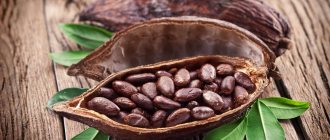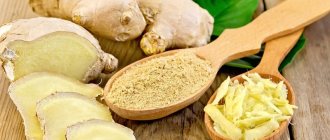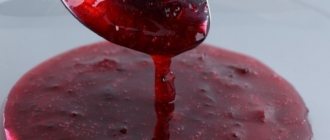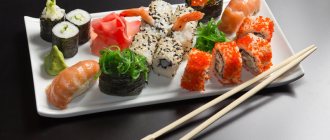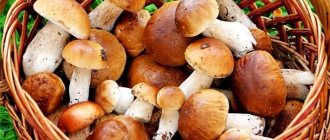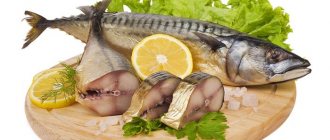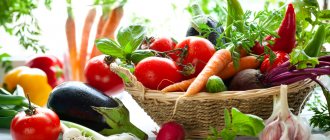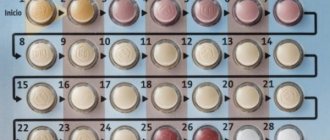A young mother needs a large amount of vitamins after giving birth. They can be obtained from various foods. There are especially many of them in vegetables and fruits and no less in juices. But during lactation, a fair question arises: is juice possible while breastfeeding? Considering that you need to drink a lot during lactation, this is very important.
When and what juices can you drink?
A nursing mother needs a large amount of vitamins. They can provide juices. But is it possible to drink juices from a nursing mother? Of course, immediately after giving birth it is better to refrain from using them. And juices should not be purchased, you need to make them yourself.
The most suitable ones are apple, birch, pumpkin, carrot, tomato, pomegranate, and peach. But you also need to be careful with them, since almost any juice and nectar can cause both positive and negative reactions.
Birch juice
This drink is considered the most hypoallergenic of all others. It can only be obtained in early spring, when birch trunks are filled with sap and give it away freely. At the same time, it is well stored. It has no special taste and is not sweet. In addition, it has a beneficial effect on lactation, increasing milk volume.
It contains a large amount of potassium, calcium and magnesium. Moreover, the taste is neutral, it contains fructose and glucose, which are easily digestible and have a positive effect on brain activity. The drink helps perfectly during the period of spring vitamin deficiency, as it contains all the necessary vitamins - A, E, C, group B. It helps cleanse the blood of toxins, which is simply necessary in the state of modern ecology. This drink also helps improve the condition of the skin and hair.
With all these wonderful qualities, there are contraindications. The main thing is individual intolerance. Although there is no allergic reaction to the juice itself, I have noticed an allergic reaction to the pollen. It is also contraindicated for people with kidney stones and stomach ulcers.
There is also a limitation in quantity - no more than 150-200 ml per day.
What juices can you use while breastfeeding?
It must be remembered that these juices must be fresh, home-made, from one component, preferably diluted with water. You should also avoid red fruits, exotic fruits and citrus fruits.
What juices are recommended:
- Birch.
- Green and yellow apple juice.
- Pumpkin juice.
- Carrot juice.
- Beetroot juice.
- Radish juice.
Each person's body is different. Therefore, even these juices should be administered with caution. Suddenly the baby has an individual intolerance.
Apple
This drink is the least allergenic and is recommended for the first complementary feeding of both the nursing mother and the child.
Apple juice during breastfeeding should be prepared from green or yellow fruits.
The benefits of this drink are as follows:
- Increasing hemoglobin levels in the blood.
- The high content of antioxidants has a beneficial effect on the body.
- Strengthens the nervous system.
- High levels of fiber improve bowel health.
- It has a high content of multivitamin and mineral complexes.
It is recommended to dilute the juice with water by half. Drink no more than one liter of diluted product per day. Consume about half an hour before meals.
Pomegranate
Very useful for all people. Contains vitamins C, B6, P, B12, iron, valuable amino acids, iodine. Helps strengthen the immune system, nervous system, blood vessels, improves hematopoiesis, increases hemoglobin levels.
Pomegranate juice during breastfeeding is also very beneficial for both the health of the mother and the child. But, unfortunately, due to its red color, as well as its exotic origin, it is prone to cause dermatitis. Therefore, it must be drunk in diluted form and introduced into your diet with caution.
Pumpkin
A very beautiful, deep orange drink. However, it is not allergic. Pumpkin juice is very useful for breastfeeding. It can be drunk not only by mommy during breastfeeding, but also by her little one while introducing vegetable juices into complementary foods.
Contains a multivitamin complex, potassium, iron, magnesium and phosphorus in significant quantities, pectin. Affects increased lactation, improves intestinal function, metabolism, and cleanses the body of toxins.
But even with all the advantages, allergies can rarely occur, so you should be careful when introducing this drink.
Apple juice
This drink is also nutritious and healthy. It is low in calories and contains easily digestible carbohydrates, fiber and vitamins (C, E, PP, P, B).
This is a storehouse of iron, which is necessary after childbirth and with low hemoglobin. The pectin contained in it removes toxins and waste from the body. Fruit acids prevent premature aging. It helps fight infections in diseases of the heart, liver, and kidneys. Improves digestion and stimulates intestinal function.
An allergic reaction to it is possible. Also, due to the large amount of acids, it can cause gastritis or stomach ulcers. But this is only possible in case of excessive use. The maximum you can drink while breastfeeding is 600-800 ml. It also does not have the best effect on the condition of the teeth. In this case, mix it well with water or juices (pumpkin, peach).
Is it possible to eat this fruit during breastfeeding?
Based on the fact that the baby’s well-being directly depends on maternal nutrition, many mothers wonder whether it is possible to eat peaches while breastfeeding? This healthy fruit is 90% liquid and contains a small amount of sugar compounds. However, pediatricians do not recommend eating it in the first month of breastfeeding, like other vegetables and fruits raw.
Mommy can eat a small piece of peach or nectarine while breastfeeding after the baby reaches one month of age, having previously peeled it, which contains many allergic substances. After use, you need to monitor your child for three days for any unwanted reaction to the product. An allergy may not manifest itself immediately, but after several hours or days, so at this time you should not experiment with other unfamiliar foods.
If the baby does not experience any negative manifestations within a given period, then the mother can continue to administer the product (peeled), gradually increasing the portion. However, moderation should be observed; you are allowed to eat no more than 1 - 2 fruits (0.3 kg) per day. If the child’s body reacted negatively to the introduction of a new food, you should stop consuming peach in any form.
Some doctors allow the use of peach fruit in the first weeks of lactation when a young mother has stool retention, as it is considered a natural laxative. To do this, remove the peel and chop the pulp. Place the resulting mass in a thermos and pour in 1 tbsp. boiling water It is recommended to perform these steps in the evening to leave the mixture overnight to infuse. In the morning, drink the drink on an empty stomach before breakfast (no need to squeeze out the pulp).
Important! This remedy can also cause relaxation in the baby.
Before use, it is recommended to peel the fruit, remove the pit, cut into pieces, lightly add salt and leave for 15 minutes. This will expand its taste characteristics.
Is it allowed in the first and second months after childbirth?
When answering the question whether a nursing mother can eat peaches and nectarines during lactation, it is worth noting that pediatricians allow the consumption of these fruits no earlier than 1 to 2 months after the baby is born, but it is advisable to wait until the baby is 3 months old. This belief can be explained by the fact that after birth the baby’s body gets used to unusual living conditions, and the final formation and strengthening of the digestive and immune system occurs.
Fruits contain allergic compounds that negatively affect the health of a child’s body at an early age and can provoke a negative immune response. Colic, indigestion, and skin rashes often occur in the child. Therefore, you should not introduce this fruit in the first months of lactation.
Important! A large number of allergens are found in the peel.
In what form should I use it?
If a woman ate peaches or drank juice from these fruits, then when introducing the product into the diet during lactation, the child’s body should normally accept such food. Pediatricians advise eating seasonal fruits raw, peeled, as this reduces the likelihood of an allergic reaction. The fruits must be ripe, juicy, without any damaged, darkened or moldy areas.
In addition, many people are interested in whether a nursing mother can eat canned nectarines or peaches? Doctors are categorically against the use of canned food during lactation. Such products contain many sugary compounds and chemical elements that negatively affect children's health. During breastfeeding, you are allowed to drink natural peach juice, but not more than half a glass (0.1 - 0.12 l). If the baby tolerated the drink well, you can increase the portion to 1 tbsp. It is advisable to drink fresh peach juice within 10 minutes, after which valuable compounds begin to evaporate. The introduction of fresh juices is also allowed.
Beneficial properties of peach juice for mom
Pediatricians advise nursing mothers to start introducing the product with peach juice during breastfeeding, which is easier for the body to digest and is considered the safest product for children.
Positive effects of peaches on the body of mother and baby:
- Protection against the appearance of malignant neoplasms.
- Normalization of the functioning of the heart, blood vessels, and central nervous system.
- Therapy and prevention of colds.
- Stimulates the activity of the gastrointestinal tract, eliminates constipation.
- Strengthening the protective properties of the body.
- Improving the functioning of the visual organ.
- Elimination of stressful conditions, postpartum depression.
- Strengthening bone and muscle tissue.
- Saturating the body with energy, improving mood.
- Getting rid of puffiness.
The benefits of the fruit are due to its rich composition:
| Name of useful substance | Main action |
| B vitamins | Participation in lipid metabolism, saturation of cells with oxygen. |
| E | Cleansing the body of harmful elements, stabilizing hormonal levels, slowing down the aging process. |
| C | Strengthening protective properties, normalizing the functioning of the central nervous system, improving mood, protecting and preventing colds. |
| PP | Protein synthesis, stabilization of the functioning of the pancreas, gastrointestinal tract, saturation of cells with oxygen. |
| K | Ensuring normal blood clotting, saturating the body with energy, accelerating wound healing. |
| A | Cell protection, strengthening immunity. |
| Iron (Fe) | Improving the appearance of nail plates, epidermis, hair, increasing hemoglobin levels, therapy and prevention of anemia. |
| Zinc (Zn) | Increasing the protective properties of the body, improving the structure of the epidermis, nails, hair. |
| Phosphorus (P) | Strengthening the bone skeleton, improving memory, activating memory concentration, stimulating brain activity. |
| Magnesium (Mg) | Normalization of blood pressure, lowering cholesterol levels. |
| Potassium (K) | Elimination of puffiness, formation of new cells, stimulation of metabolic processes. |
| Manganese (Mn) | Strengthening the walls of blood vessels, joints, bones, regulating blood formation. |
Peach is considered a low-calorie product and is therefore suitable for dietary nutrition.
Pomegranate juice
Pomegranate drink is good for anemia. Also, the tannins contained in it strengthen. But this is sometimes a negative factor, since with constipation it will only worsen the situation. A large amount of potassium has a beneficial effect on the cardiovascular system. It improves the functioning of the digestive system, increases appetite, and has a positive effect on the immune system.
Like apple juice, pomegranate juice contains acids, which is also prohibited for diseases of the digestive system (pancreatitis, gastritis, etc.). Therefore, it must be diluted with other juices (beetroot, carrot) or simply with boiled water.
Drink no more than 100-300 ml. Although it is quite tart and hard to drink.
pumpkin juice
In Russia this drink is not as widespread as in America. But in vain, since it is very nutritious and contains many vitamins and microelements. It is useful for diseases of the liver and nervous system. It is also good for preserving natural beauty. To improve your sleep and psychological state, you need to drink it before bed. It also improves immunity. It also has a beneficial effect for breastfeeding - it increases the amount of milk in the mother.
Pumpkin juice is unfavorable for low stomach acidity and other diseases of the digestive system. In addition, if you are prone to diarrhea, you should not drink it either. The norm is no more than 400-600 ml per day.
Tomato juice
Whether tomato juice is allowed is a very controversial issue, since this product is quite difficult not only for the baby’s digestion, but also for the mother herself. But there are a lot of necessary substances - not only vitamins (A, E, PP, C, H, group B), also microelements:
- calcium;
- magnesium;
- potassium;
- iron;
- manganese;
- selenium and others.
Thanks to them, it has a good effect on the immune, cardiac, and nervous systems. The pigment contained lycopene has an antioxidant effect.
The negative factors are the same acute diseases of the gastrointestinal tract and a possible allergic reaction. You should not consume more than 200 ml per day.
carrot juice
Another vegetable drink is carrot. It is a source of vitamin A, which is essential for maintaining normal vision. It also strengthens bones and teeth, supports thyroid function, improves external condition, and has a cleansing and calming effect. It increases appetite.
Like other juices, it is undesirable for diseases of the gastrointestinal tract (gastrointestinal tract). If used excessively, it may stain the skin (mainly the palms and soles).
You should not drink more than a glass a day. Many people don’t like it, so it can be mixed with apple juice.
Peach juice
This drink is very thick due to the pulp it contains. But most often it is found in the form of nectars. It contains a large amount of organic acids, essential oils, vitamin C and group B. In addition, it is rich in carotene and pectin, improves digestion, removes toxins, improves liver function, and is good for those prone to colds and infectious diseases. Normalizes the functioning of the cardiovascular system.
It should not be used if you have diseases of the digestive system, allergies or a tendency to obesity. You need to drink no more than 150-200 ml.
Possible harm of peach juice during lactation
Freshly squeezed peach juice is a great way to protect your health and that of your baby, but if you drink too much of it, you may experience some side effects.
- For example, in some children, peach juice drunk by their mother can cause an allergic reaction or digestive problems. Allergies usually result in redness, spots and coughing. If this happens, then it is better to give up this drink for a while and return to drinking it in a couple of months - then the baby’s digestive system will be formed much better.
- Also, drinking a large amount of juice can cause diarrhea, but only in a nursing mother. Abdominal cramps and flatulence are also observed.
- Excessive consumption of peach juice can also cause drowsiness. As we mentioned above, this drink has sedative properties, and therefore, when consumed in large volumes, this effect is enhanced.
- Peach juice made from out-of-season fruit can cause food poisoning. Of course, poisoning will not affect the baby in any way, but the toxic substances contained in such a fruit can pass into breast milk.
How to drink juices during lactation
When it comes to whether juices can be used while breastfeeding, their benefits are also known for the fact that many of them increase the amount of milk. But it is best to move them to the first half of the day. Also, do not drink before meals.
Drinks are introduced after 1-3 months of newborn baby. During this period, the baby's digestion is gradually established. You need to start with 1-2 sips. Then gradually increase to normal. But don’t forget about the rest of the drink. These are teas (including herbal), infusions, compotes and just pure water. Also, these drinks are not drunk in pure form, they must be diluted in a 1:1 ratio. This can be done with water or decoction.
| kinds | calories, kcal/100 g | useful material |
| birch | 24 | vitamins, fructose, organic acids, enzymes, tannins, potassium, magnesium, calcium, copper, sodium |
| apple | 42 | vitamins B, C, P, PP, E, iron, iodine, calcium, potassium, magnesium |
| pomegranate | 64 | vitamins (C, B), minerals, organic acids, enzymes, potassium, antioxidants |
| peach | 40 | organic acids, essential oils, fiber, iron, potassium, carotene, pectin, vitamins C, B |
| tomato | 21 | potassium, vitamins C, A, B, carotene, oxalic acid, purines |
| carrot | 28 | vitamins (A, E, C, D, B), potassium, calcium, magnesium, carotene, iodine |
| pumpkin | 38 | pectin, carotene, vitamins A, K, E, B, C, ascorbic acid |
Juices and lactation
It is not wrong to say that juices have a positive effect on the lactation process. However, not all drinks provide equal benefits. And it’s better to know which juices improve this process:
- Carrot based juice. The freshly prepared product has particular benefits. This vegetable contains a wide variety of vitamins, especially a high content of vitamin A. This drink is very valuable for both the health of the mother and the child. In addition, it really improves the quality of breast milk and increases the amount of milk produced.
- Radish juice. It is better to add a little honey to this drink. Its benefits are slightly less than those of the previous juice, but they still exist. Unlike carrot juice, this juice should be drunk in limited quantities.
- Beetroot and pumpkin juices are also considered beneficial for lactation.
- In addition to the above, almost all fruit juices can be included. After all, lactation depends not only on substances entering the mother’s blood. It is also directly related to the mood, health and well-being of a young mother. Therefore, a vitamin complex will be very useful during such a period.
Juices are very useful for a nursing woman, both for improving lactation and for general well-being. And a healthy mother will have a healthy, cheerful baby. The main thing is to choose the right drinks you need, and also give preference to freshly squeezed drinks and those made at home.
Where are juices used?
Apart from simply being used as a drink, juices can be used in the preparation of various dishes. Fruit ones are most often used for desserts. But some are also great for meat and cereals. Vegetables are also used in cooking. This is especially true for tomato. It can be added to vegetable stews, when stewing meat, poultry, and fish. It is also used as sauces.
Other vegetable drinks can also be used to add certain flavors to dishes. From the juices you can make the most summer dish - ice cream. It will be useful and allowed when feeding. You can also make marmalade, sherbet, jelly and other sweets.
To make your own juice, you need a juicer. But you can cope without it. To do this, grate the vegetable or fruit on a fine grater, put the mixture in cheesecloth and squeeze it out. This method is suitable for almost any drink. For pomegranate, you need to peel the grains, mash them in a mortar and also strain through cheesecloth. Such drinks will be clean and healthy.
Juices are necessary in the diet of a nursing mother. They diversify the menu and fill the body with essential nutrients. Thanks to them, vitamin deficiency can be avoided.
But at the same time, it is worth monitoring the reaction of both mother and baby to them. Which juices you can and cannot drink will become clear only when you add them to your diet. And there is no need to despair if for certain reasons you were unable to drink them. Perhaps this is only a temporary phenomenon, and it will gradually pass, allowing you to enjoy the taste of your favorite drink.
what kind of juice can a nursing mother have?
I found an article, I think it will be interesting to read)
“The most common myth about nutrition for a nursing mother is the need for a strict diet. The child does not have any problems yet, but there are already limitations. This is not to say that these diets do not lead to tangible results - they still can. A nursing mother spends an additional 500 kcal per day. But in addition to feeding the child, she also needs to look good, be healthy, perform household chores, and even earn extra money. Nutrition must be complete and varied, otherwise the body will become depleted. The myth of a strict diet very slowly, creakingly, clinging to instructions in clinics and the behests of mothers-in-law, is becoming a thing of the past. Wave after him! Good cabbage will not spoil milk Thanks to modern science, we have learned that milk is not stored in the breast, does not turn sour and does not disappear of its own free will. And now we know how it turns out. The hormone prolactin is responsible for the quantity, and the hormone oxytocin helps the release of milk. Breast milk is synthesized from blood and lymph. To spoil it with food, you need to eat: A) Only chemicals. Unfortunately, chemical additives (preservatives, dyes) end up in milk unchanged. And they can cause an allergic reaction in a child. If a nursing mother often snacks on chips and cola, colic and diathesis REALLY will occur, thanks to her diet. B) Nothing. But even in this case, breast milk will remain a complete food for the baby. All the juices will simply be sucked out of you, as people say, breast milk will colorfully and fully consist of all the body’s resources. “Don’t eat cabbage, cucumbers, bread...” Why does white cabbage make you “puffy”? It contains a lot of fiber. Fiber is not absorbed by the body; it passes through like a cruel brush. The intestines experience excitement. The same reaction happens to rye bread. Fiber is not digested and is released - how can it affect breast milk? - no way. All the myths about the dangers of cabbage, cucumbers and bread came to us from the distant past, when no one had any idea about the composition of breast milk or the reasons for its production, so we will continue to listen to the story about harmful cabbage, passed down from generation to generation, for a very long time . If a nursing mother suddenly becomes interested in raw food, perhaps the predominance of raw vegetables will cause flatulence in both. The danger from vegetables that have undergone heat treatment is minimal, as is the danger from baked fruits. However, some mothers notice that their child has a stomach ache after eating “fatty” foods. If you put aside excessive suspiciousness and coincidences, this happens. This phenomenon has already been described in an article on the nutrition of pregnant women (https://www.u-mama.ru/read/article.php?id=4483) The fact is that we often do not notice which foods cause discomfort in our body . We simply do not pay attention to short-term flatulence, heartburn, constipation and other symptoms of intolerance. If a nursing mother herself cannot tolerate cabbage, apples or legumes, if these foods cause turmoil in her stomach, most likely the baby will also have a reaction to them, since these problems directly affect the composition of the blood. Largely thanks to the Soviet past, our consciousness is structured in such a way that we perceive any “special” situation as a system of restrictions, rather than self-knowledge. Are you pregnant? - first thoughts about what is impossible. Have you given birth and are breastfeeding? - again we think about “impossible”. You need to try very hard to harm your child by eating a varied and high-quality diet. If you think of feeding as food restrictions, you will inevitably be drawn to chips and chocolate. Out of a feeling of protest. And many local doctors “put” nursing mothers on a diet for a reason that has been discussed many times - for easy control. Are you on kefir and buckwheat? - wonderful. We leave you aside. Well, actually, I also eat fish,” whispers the tired mother. Yeah! - says the doctor, it’s all about the fish! In this case, the doctor will “treat” with stereotypes, not with wise advice, and a modern mother who knows the Internet and some logic should not panic. Children of the first year of life have the right to diathesis, skin rashes, and dry skin. And these problems are very rarely associated with the mother’s diet - in the event that there is no obvious abuse on her part of products from the “risk group”. And fish is not a risk. This is useful. What should you eat to make your milk more nutritious? 1. The period of feeding a child is a natural process. Not a disease, not a special stressful condition that threatens life. No special diet is required. Not a single living creature on the planet changes its diet after the birth of a baby. Eat normally. Like pregnancy, breastfeeding is a great opportunity for the whole family to switch to a healthy diet. A child may have an allergic reaction not to a single product, but to some dish with complex gravy or other additives (broth cubes, surrogates from bags). You can eat simpler, but more varied and healthier. 2. During pregnancy, the child “took” useful substances for its development from the mother’s body - and during feeding, it will use maternal resources. A nursing mother should not be hungry. Her health depends on her nutrition - and not only at the moment, but also the state of her immunity in six months, a year and beyond. 3. Breast milk is not bad or “poor.” In countries with a low standard of living, scientific research into the nutrition of children under one year old and nursing mothers has been conducted more than once, and the results have been made public. The breast milk of a woman who is undernourished remains complete in composition, providing the baby with all the necessary substances. What can we say about the composition of the milk of our non-starving compatriots. And yet, the “risk group” exists. So, during the “lactation” period you can eat everything that relates to healthy food. And now it’s time to remember about an individual approach. All people are different, each body is individual. Everyone has their own rhythm, including the rhythm of assimilation of certain products, everyone has their own benefits and harm. There are categories of foods whose consumption in excessive doses can cause a reaction in a child. There is an opinion that if a nursing mother takes them in microdoses, nothing bad will happen, the effect on blood composition will be minimal. Introducing allergens through breast milk in small quantities will prevent the occurrence of allergies in the future. With the help of breast milk, the baby better adapts to these products. But the consequences of overeating can be unpleasant. Especially if the parents are prone to allergies, and this tendency will be passed on to the child. What products should you pay attention to: 1. A person’s relationship with cow’s milk gradually deteriorates. A hundred years ago he tolerated it tolerably, but now it’s getting worse and worse. When cow protein enters the bloodstream, it often causes an allergic reaction. In fermented milk products, the protein is in a modified form; they are unlikely to be harmful. 2. Cereals contain gluten, and this protein can also cause intolerance. Pasta and bread should not be the mainstay of your diet. 3. Red vegetables and fruits, exotic fruits. By the way, they are less digestible. An allergy “to red” can occur if the mother has a predisposition to it; in other cases, the reaction is possible due to overeating - after a full plate of cherries, for example. 4. Alcohol. There are no safe doses of alcohol during breastfeeding. If you really want to try something “forbidden” - for example, you are craving kiwi, introduce a new product gradually. Don't refuse, but try. Eat half of the “forbidden” fruit and watch your reaction. If there is no reaction, eat another half the next day. If nothing happens in two weeks, most likely nothing will happen. The main thing is not to worry about restrictions. You can eat - you can't overeat. But you knew in everyday life that overeating is unhealthy, and not just during the nursing period. If you have made several sandwiches with strawberry jam, and your stomach is slightly churning afterwards, your child may not have a skin rash from the strawberry jam. And because the mother does not know her body, she does not know that it is harmful for her to eat bread in large quantities. And for some, bread is not a hindrance, but from monotonous food consisting of “empty” carbohydrates, the skin on the hands dries out and the hair deteriorates - my mother usually attributes these symptoms to her nursing position - they say, I’m giving away all the vitamins! And again he doesn’t watch his diet. Everything is individual. A dermatologist, when looking at a child’s diathesis, must look at the mother—at her skin. Ask if she has gastritis or eczema. And if so, did she choose the right diet for herself? Restrictions in everything are the wrong diet. Olga Vyacheslavovna Anokhina, a nutritionist and nutritionist at the Ural Federal Center for Health Nutrition, and a researcher at the Laboratory of Hygiene and Nutrition Physiology at the Yekaterinburg Medical Center for Prevention and Health Protection, advises. (full text of the interview: www.u-mama.ru/read/article.php?id=3505) - Explain the mechanism of allergies. Why do the same foods cause allergies in one person, but not in another? - Well, for example. Mom ate, say, harmless oatmeal with water. With the help of mother's enzymes and other substances in her digestive tract, this porridge is converted into final products that go into milk, and from there - in semi-cooked form - this same porridge is very well absorbed by the child's body. But! If the mother herself has chronic gastritis, stagnation of bile in the intestines, dysbacteriosis, constipation for many days, insufficient enzymes, and much more, then this banal porridge has not been digested to those particles that are available for the child’s digestion. This very porridge in its “unfinished” form, so to speak, is still difficult-to-digest, foreign food for the child, which will be an allergen by definition. Although my mother ate very good and healthy food. - So the problem is not what a nursing mother eats, but how well she digests it? - Absolutely right! That is why, in some cases of allergies in infants, I prescribe treatment first of all to the mother herself. And lactofiltrum (because the mother herself has dysbacteriosis), and corn silk, and pumpkinol (because it is necessary to improve the separation of bile, which contains a lot of substances that help digestion), and the same enzymes - I first prescribe it to my mother, and only then can I think about treating a child... And feeding an innocent baby antihistamines and smearing his skin with ointment for allergies does not mean treating allergies, it only means relieving symptoms! You need to start with correcting the digestion of a nursing mother. This, if you like, is my nutritional position. In the most alarming case (this does not apply to slightly reddened cheeks or dry skin), when skin problems really interfere with the child’s life, the mother switches to a diet: white and green vegetables, green fruits, gluten-free cereals (rice, buckwheat, corn) and gluten-free pasta, sweets - marmalade, marshmallows, simple cookies and dried goods, any meat is allowed - except chicken, white fish, fermented milk products without chemical additives. As you can see, the list is huge, and it’s impossible to go hungry. For those who are especially suspicious: you can exclude any type of food for two weeks and carefully monitor the child’s reaction - for example, exclude all gluten (gluten cereals, bread, pasta). If within a month there are no changes in the condition of the child’s skin, then most likely the problem is not in the mother’s diet. And once again analyze your health! If a mother has gastritis, problems with the gallbladder or pancreas, she needs a gentle diet, since all these problems inevitably affect the child’s absorption of food. Myths about nutrition for a nursing mother If you eat poorly and drink little, your milk will disappear! The secretion of breast milk depends on the work of hormones, and not on the amount of food eaten and drunk. Hot drinks cause a rush of milk, but there is no more milk - it will simply be easier for the baby to suck. If you eat poorly, your milk will become poor! (“Look, he’s already thin” - and other nice sayings from relatives) The quality of breast milk depends to a small extent on the mother’s nutrition. If some nutrients are missing, they are compensated by the resources of the mother’s body, so the mother should eat well to support herself, and not breast milk. The child has diathesis - the mother needs to adjust her diet. Modern research shows that children rarely have food allergies in the first months of life. More often there are allergies to baby cosmetics, a certain brand of diapers or baby wipes, washing powder, low-quality water, and after the baby crawls, an allergy to pets is possible. A nursing mother should not eat radishes, garlic and onions; the baby may refuse to breastfeed. If there is a baby who refuses to breastfeed because of the “garlic” taste of milk, it should be immediately presented to the general public for real confirmation of this stupid myth. If the child continues to develop skin rashes, he should be switched to formula. In this case, the child may never get used to potential allergens, because depriving them of access does not mean solving the problem. If the child has not received timely information about various products through mother’s milk - information in a microdose that is unable to affect the immune system - in the future the risk of allergies will be much higher with the introduction of complementary foods. Mother's milk contains enzymes and other substances that help adapt to allergens. A nursing mother needs to take vitamin complexes to make her milk healthier. Any vitamin supplements will help (or not help) the mother herself. As mentioned above, the “depletion” of milk is instantly compensated by the body’s resources. The child will not receive more calcium or iodine if the mother takes vitamin complexes “for nursing”; excess iron is not transferred through milk at all. The child will take his own anyway. Breast milk does not become poorer in composition until 1.5-2 years. And finally, an interesting fact: Studies of lactating mothers on a poor (according to Western ideas) diet in Burma, Gambia, Papua New Guinea, Ethiopia and the Navajo Indians continually show that lack of nutrition does not in any way affect the quality of the milk of these women. By the way, a study on increasing the diet of lactating women in the Gambia by 700 calories showed that their milk supply did not increase with an increase in calories in the diet. The extra nutrition went into the mothers' fat reserves and subcutaneous fat, rather than into milk. This is a reason not to fall for the advertising of nursing supplement manufacturers to improve the quality or quantity of milk!”
